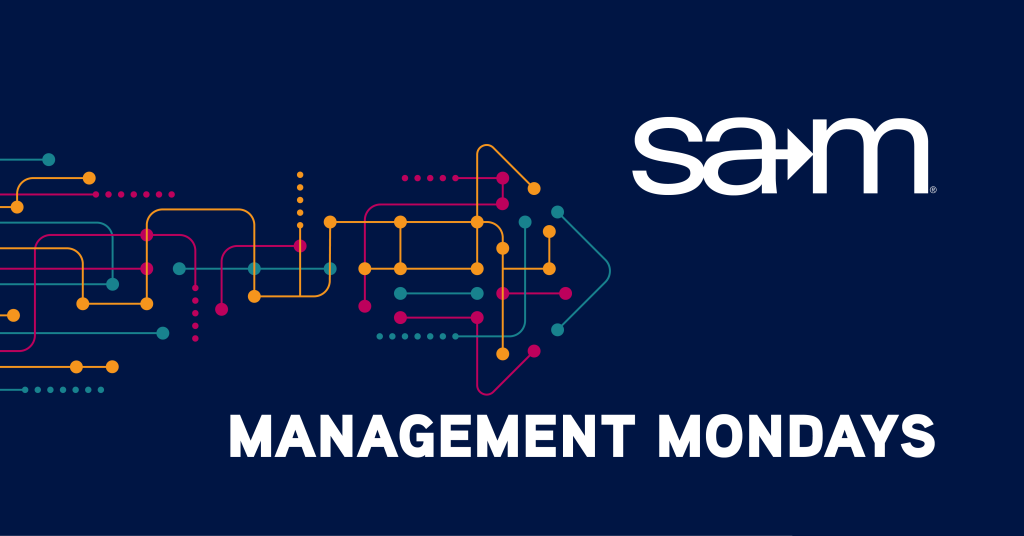
Forgiveness is often seen as a deeply personal virtue, something reserved for close relationships or moments of profound hurt. In the workplace, however, forgiveness plays an essential but often overlooked role in leadership. When conflict, mistakes, or unmet expectations arise, the ability to forgive allows a leader to reset the tone and restore trust. This doesn’t mean ignoring problems or letting people off the hook. Instead, forgiveness gives us a way to move forward without letting the past permanently stain the relationship.
For early-career professionals and mid-level managers, forgiveness can feel counterintuitive. Many feel pressure to establish boundaries, assert authority, or appear strong in the face of setbacks. In reality, forgiveness reflects strength, not weakness. It takes discipline to look past a misstep and continue to believe in someone’s potential. Holding onto resentment may seem like a way to protect yourself or your team, but it often leads to emotional exhaustion and fractured collaboration.
When used thoughtfully, forgiveness reinforces accountability in a healthy way. Rather than punishing someone for a single mistake, it creates space to reflect, recalibrate, and try again. It allows teams to take risks and recover from failure without fearing permanent damage to relationships. As work becomes more dynamic and fast-paced, the ability to reset quickly becomes a competitive advantage. Forgiveness fuels that reset by placing progress above pride.
Recognizing the Hidden Cost of Grudges at Work
Holding grudges in the workplace often starts subtly. Maybe a colleague cuts you off in a meeting, misses a deadline, or fails to communicate critical information. At first, you may decide to let it slide. Over time, however, small frustrations can accumulate into lingering resentment. These unspoken tensions create distance between team members, reduce collaboration, and lead to passive-aggressive behavior that damages team culture.
Grudges also affect how leaders allocate trust and responsibility. If you find yourself avoiding certain individuals, withholding feedback, or limiting someone’s involvement based on past frustrations, it may be time to examine whether forgiveness is needed. While it is important to address recurring issues, holding onto a grudge often results in a double penalty. First, the person is impacted by the original mistake. Then, they are denied future opportunities to contribute or grow. This approach can quietly erode morale and create divisions that hinder overall team performance. When left unchecked, it sends the message that mistakes define people permanently, rather than offering them a chance to recover and improve. That mindset can discourage initiative and make people hesitant to take healthy risks.
The emotional toll of unaddressed conflict can be significant. Even if it is not openly discussed, tension tends to surface in body language, tone, and decision-making. This can lead to confusion or anxiety among team members who sense that something is off but do not know why. Leaders who can identify and address these undercurrents through honest conversation and forgiveness often enjoy a more cohesive and resilient team environment. People do better work when they are not walking on eggshells.
Separating Accountability from Resentment
Forgiveness does not mean erasing responsibility. In fact, the most effective form of forgiveness comes after accountability has been addressed. When someone is held responsible for their actions and then given the opportunity to make it right, the experience becomes a point of learning rather than shame. This approach transforms errors into momentum and strengthens trust rather than eroding it.
One way to ensure accountability and forgiveness go hand in hand is to separate the behavior from the person. For example, saying “the mistake had real consequences, and we need to make adjustments” is different from saying “you always do this” or “you can’t be trusted.” The first keeps the focus on what happened. The second turns it into a judgment on someone’s character. That kind of labeling creates emotional wounds that are difficult to heal and can make recovery almost impossible.
Resentment, on the other hand, is often based on stories we tell ourselves about other people’s intentions. If we assume that someone acted out of laziness, disrespect, or carelessness, we create emotional distance. Forgiveness asks us to pause those assumptions and instead approach the situation with curiosity. What else might have been going on? What support was missing? This kind of reflection opens the door for a more thoughtful and productive path forward.
Repairing Relationships Without Sacrificing Boundaries
Forgiveness is not about giving people endless chances or allowing them to take advantage of your kindness. In fact, healthy forgiveness often requires stronger boundaries. If someone repeatedly disrespects your time, undermines your efforts, or violates shared agreements, forgiveness can come in the form of a clearer conversation about what is and is not acceptable. It is not about pretending everything is fine. It is about finding a way to move forward with honesty and intention.
Sometimes the best way to repair a relationship is by naming the impact of what happened. For example, you might say, “When that deadline was missed, it put me in a difficult position with leadership. I want us to find a better way to stay aligned.” This approach focuses on consequences without assigning blame. It invites collaboration rather than defensiveness. By doing so, you create an opportunity for the relationship to evolve instead of unravel.
Repair also depends on consistency. Once forgiveness is extended, it should be reflected in how you treat the person moving forward. Bringing up past mistakes as a weapon undermines the process. True forgiveness means choosing to no longer carry the emotional weight of the situation. This emotional discipline creates space for renewed trust and allows the team to focus on shared goals instead of lingering tensions.
Forgiveness as a Tool for Team Culture
A culture of forgiveness starts with how leaders respond to failure and disappointment. When setbacks are met with reflection and support rather than blame, it becomes easier for others to admit mistakes, ask for help, and stay engaged. This creates a learning environment where growth is expected and vulnerability is safe. Teams that embrace this mindset adapt faster and perform better in the long term.
Forgiveness also promotes psychological safety, which is one of the most important predictors of team effectiveness. When people know they can recover from a mistake without being permanently labeled or excluded, they are more likely to contribute ideas, raise concerns, and push beyond their comfort zone. This doesn’t mean mistakes are ignored. It means mistakes are addressed in a way that prioritizes growth and learning over shame and punishment.
Even informal acts of forgiveness can make a big difference. A sincere “I know you didn’t mean that” or “I get that you were under pressure” can diffuse tension and reinforce connection. Over time, these small acts accumulate into a culture where people feel supported, understood, and motivated to improve. Leaders who practice and model forgiveness help create teams that are not only more effective but also more human.
Final Thoughts
Forgiveness is a leadership tool that often goes underused. In a world that prizes performance and precision, it can feel risky to let go of mistakes or offer someone a clean slate. But the reality is that high-performing teams do not thrive on fear or grudges. They thrive on trust, learning, and the willingness to grow together. Forgiveness supports all of these qualities by allowing teams to recover, regroup, and realign without being dragged down by past missteps.
Letting go does not mean letting people off the hook. It means holding people accountable while still believing in their capacity to do better. It means prioritizing the long-term strength of your team over the short-term satisfaction of being right. Leaders who can forgive without forgetting the lessons learned create an environment where people are willing to try, fail, and improve. That is where real progress begins. Whether you are managing a team or simply learning how to navigate tough situations, remember that forgiveness is not a weakness. It is a deliberate act of leadership that helps move people forward. By choosing to lead with empathy and intention, you create the kind of environment where accountability, resilience, and human connection can all thrive.
Forgiveness is just one part of building a workplace where people feel supported, motivated, and ready to grow. Coaching is the next step. As part of the SAM Management Training and Development program, our Coaching course equips frontline managers with the tools to guide employees through challenges, improve collaboration, and foster long-term growth.
Learn how to use the GROW model, practice active listening, set SMART goals, and create a coaching culture that supports both accountability and empathy. Plus, SAM members receive 20% off all course registrations, including our Coaching course. Enroll today and start coaching with purpose, clarity, and confidence.

Written By,
Patrick Endicott
Patrick is the Executive Director of the Society for Advancement of Management, is driven by a deep commitment to innovation and sustainable business practices. With a rich background spanning over a decade in management, publications, and association leadership, Patrick has achieved notable success in launching and overseeing multiple organizations, earning acclaim for his forward-thinking guidance. Beyond his role in shaping the future of management, Patrick indulges his passion for theme parks and all things Star Wars in his downtime.
